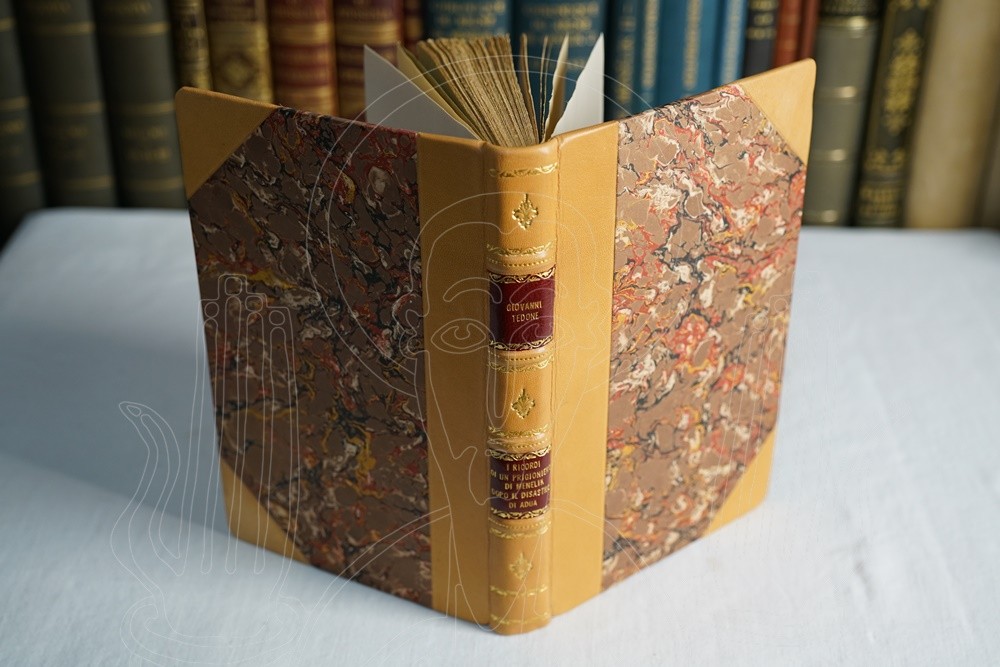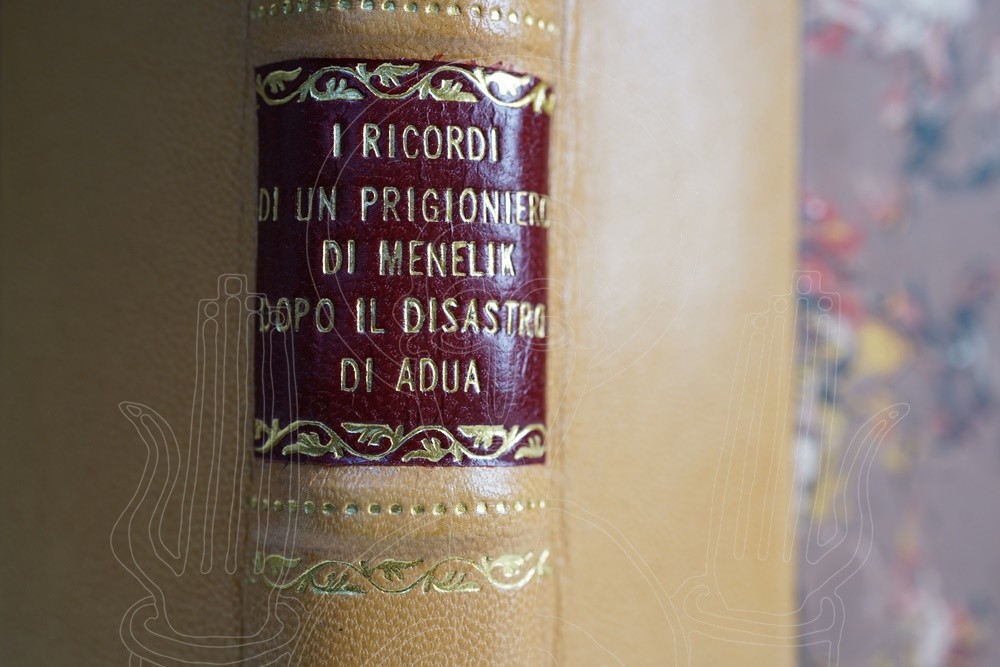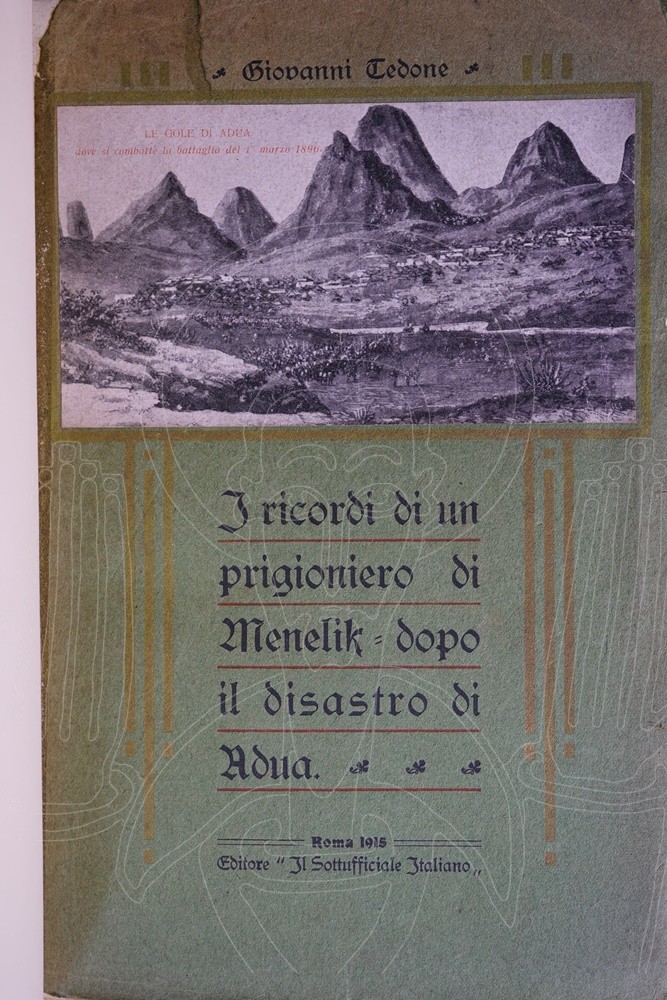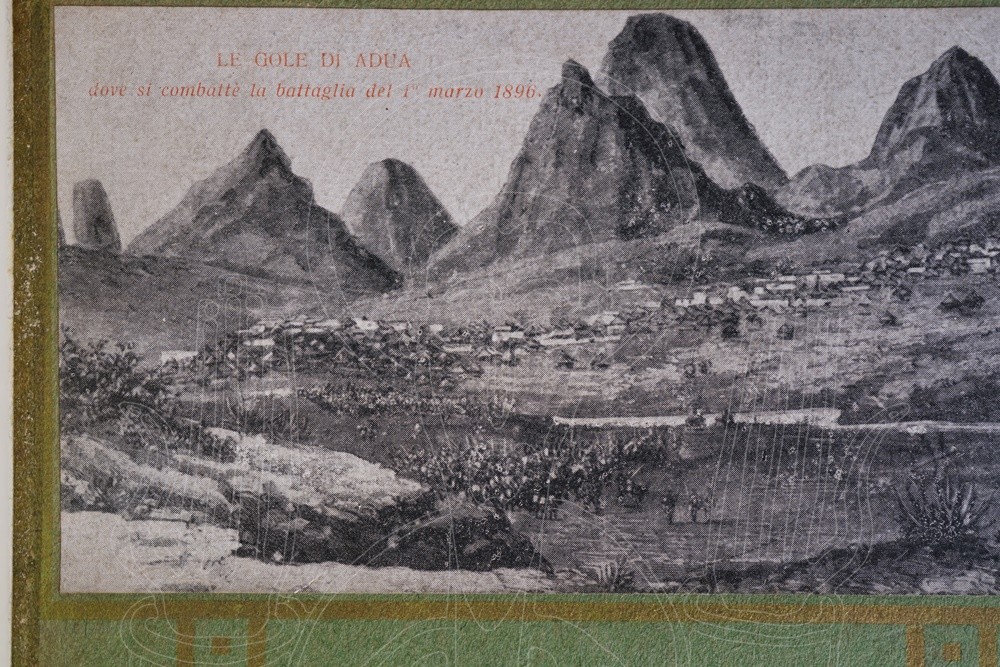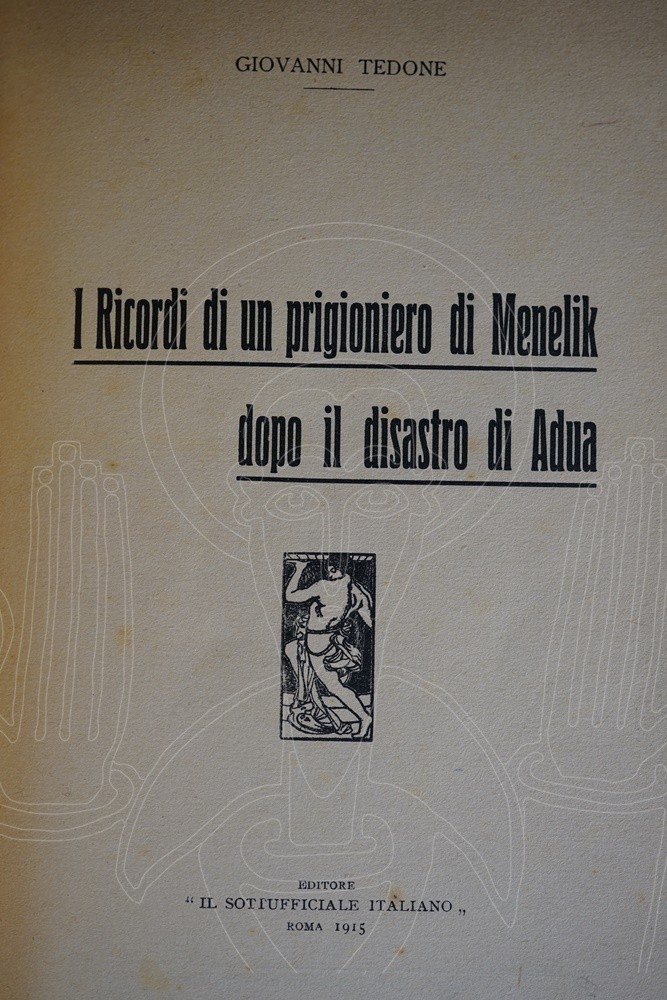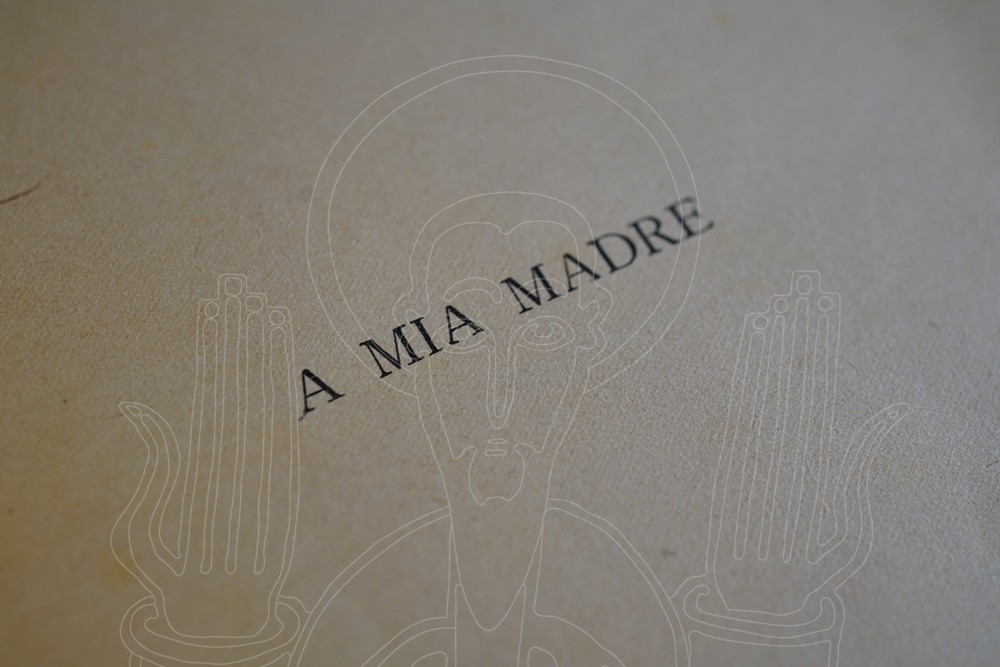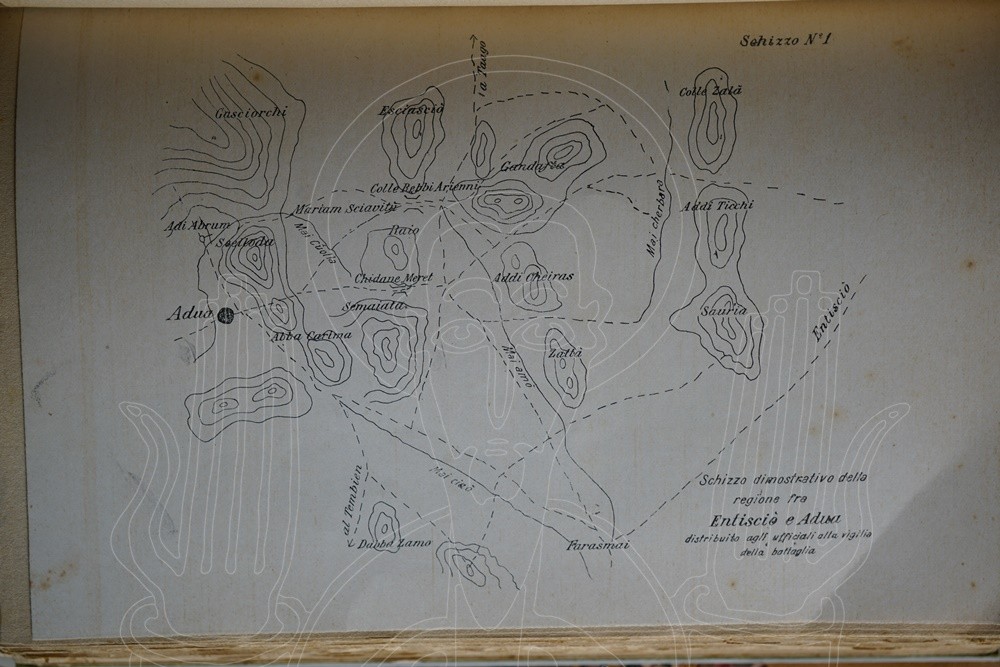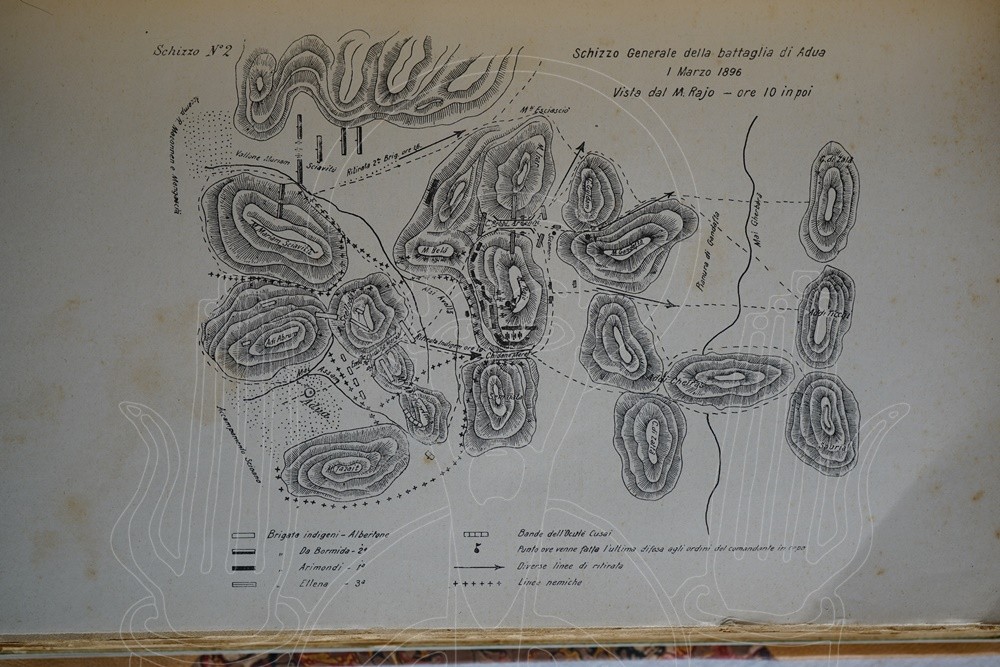Description
Mémoire autobiographique.
Immediately after the peace treaty of 26 October 1896, a convention for the repatriation of prisoners was signed. They were to be assembled in the briefest possible time and sent to Harar. On 20 November the first group was released. The total number freed by mid-1897 was 49 officers and 1,656 soldiers. Survivors with less severe injuries were treated in Addis Abeba by a Russian Red Cross team, and in Harar by an Italian medical unit.
Source: Marcus p. 177
An Italian sergeant Giovanni Tedone was wounded in the battle of Adwa at the age of 24. He took part in the four-month walk of prisoners of war to Addis Abeba and then was kept in villages of Chercher for six months. An Ethiopian lady with important relatives befriended him. However, there came an order from Ras Makonnen to join a work party chosen to paint the Awash River bridge. The prisoners signed that they had finished this work in September 1896, but Tedone also wrote “Viva l’Italia” and in Italian language “Death to the Ethiopian empire”.
In October Cesare Nerazzini came to sign the peace treaty with the Emperor. On 20 November 1896 the Nerazzini party, accompanied by Ras Makonnen and Léon Chefneux, started making the return journey picking up prisoners along the way, among them Tedone.
All the Italian ex-prisoners collected in this way were camped outside Harar when Giovanni Tedone was summoned to Ras Makonnen. When asked if he had written the insulting words on the Awash bridge, he admitted that he had. “I ought to suspend your departure,” said Makonnen, “but because you were honest and because of my regard for Major Nerazzini, I give you leave to go.”
Source: Prouty pp. 171-178
Biblethiophile, 27.02.2019
